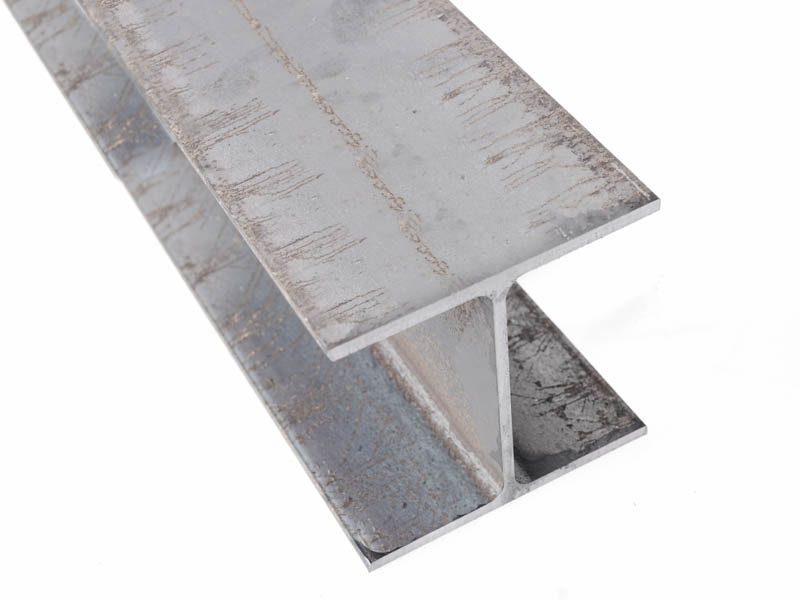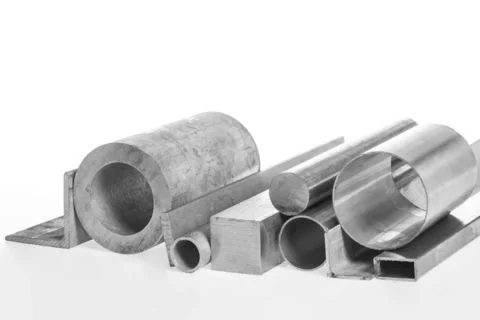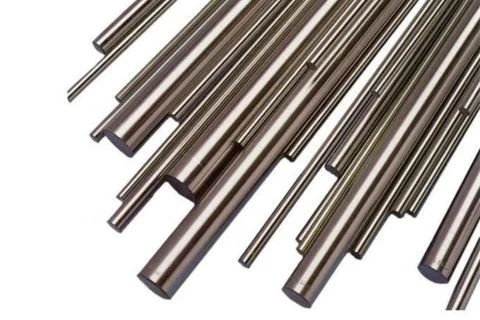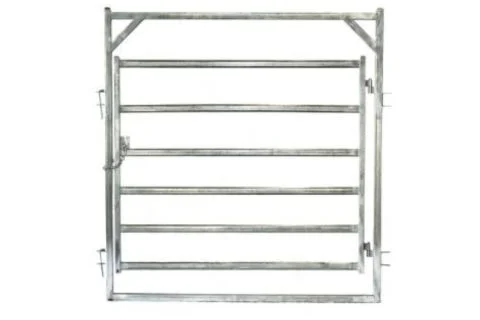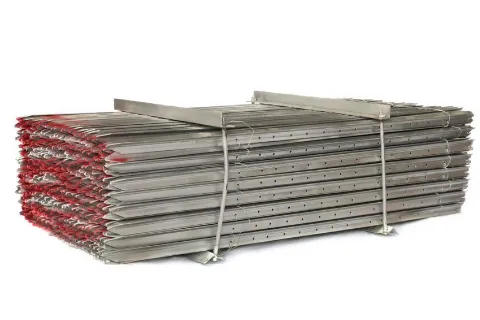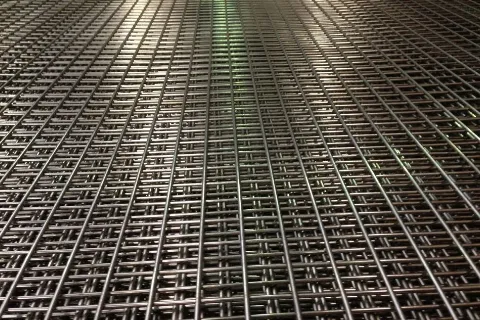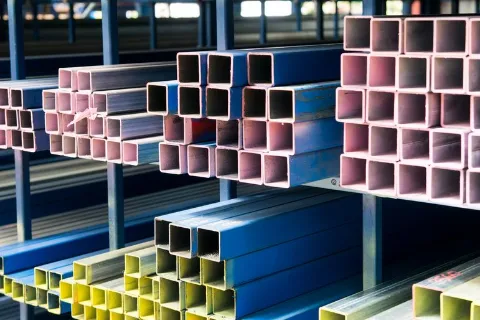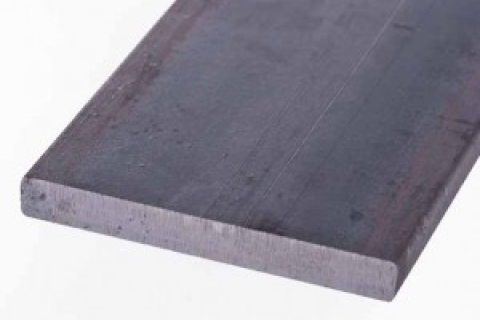Engineering steel grades explained
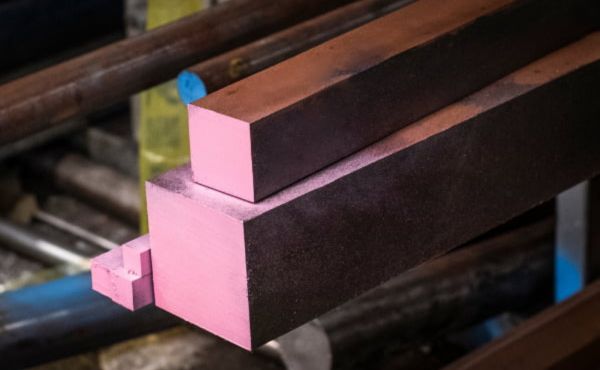
The grades of engineering steel are as diverse as the industries and projects they are used in. Choosing the wrong steel can spell disaster… and we don’t want that to happen!
The steel grades act as common guidelines that set out the composition, mechanical properties, tolerances on dimension, manufacture method and quality control provisions that are specific to each material.
At Edcon, we’re proud to provide a huge range of engineering steel, all of which can be found on our website.
Here, we outline the differences between engineering grades of steel and their best applications.
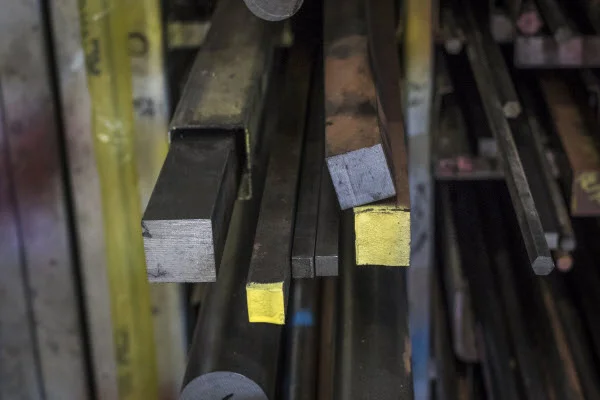
Choosing the right engineering steel grade
Working with the best engineering steel grade shouldn’t be treated as an afterthought.
Choosing the right grade requires a thoughtful approach and it’s vital to understand some key factors before making your final decision.
Some of the most common considerations for choosing the best engineering steel grade include:
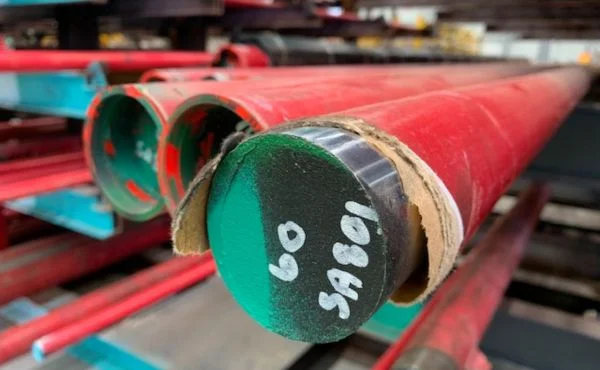
Formability
One of the most important factors to consider is if the engineering steel has good formability. Some elements, such as chromium and boron, increase the steel’s hardenability.
Since most engineering steels are able to be hardened, forming is typically done in the annealed state of the material.
Engineering steels that are annealed and have lower amounts of alloys and carbon are typically more formable than those with higher amounts of carbon and other alloying elements.
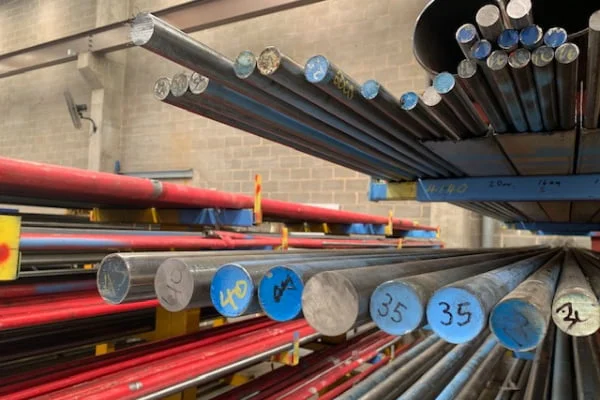
Welding
If you’re using engineering steel for welding, there are also some unique factors to consider. Some of the elements added to engineering steels can be detrimental to welding. Be wary of additions of sulfur and boron if you plan to weld, as both can induce cracking.
Also, if the carbon content of the steel is high, care must be taken pre-heat the material and to slow the rate of cooling to avoid cracking.
Corrosion resistance
If corrosion needs to be inhibited (and coating is not an option) then it is important to find a grade that has increased corrosion resistance. Engineering steel grades with a higher amount of elements such as chromium, copper, nickel and molybdenum will generally have a greater resistance to corrosion.
Strength
You will also need to consider the strengths required for your project. Depending on the alloying elements used, very high tensile strengths can be achieved. The strength achieved with engineering steel depends on what elements the steel is made up of as well as the heat treated state the steel is in.
Engineering steels that are annealed or normalised will have lower strengths than the same ones that are heated and rapidly quenched. This means it is best to look at a material data sheet to determine what strengths a particular product can achieve.
At Edcon Steel, we offer a wide range of engineering steel grades. Whether you’re looking for improved surface finish, enhanced mechanical properties or better machinability, we have an engineering steel grade that can suit your needs.
Next, we take a look at some of the most common engineering steel grades and how they can be utilised for their optimal applications.
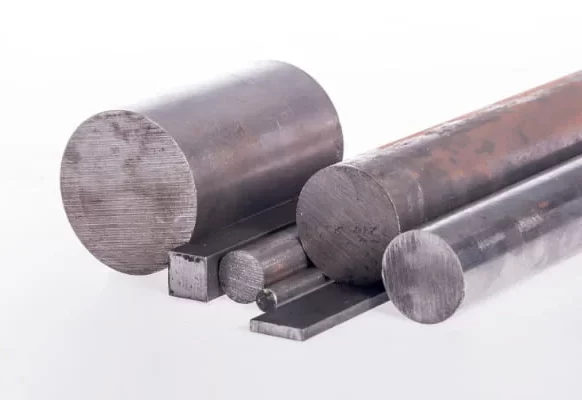
Bright Mild Steel 1020
Bright Mild Steel (1020) is a carbon steel alloy which has the surface condition improved by drawing, peeling or grinding over the hot rolled finish supplied by the steel mill. Bright mild steel has low hardenability properties, is a low tensile carbon steel and is normally used in a turned, polished or cold drawn condition.
Due to its low carbon content, 1020 will not respond satisfactorily to flame or induction hardening, nor to nitriding, due to a lack of suitable alloying elements.
This makes bright mild steel a good choice for improved machining and improved dimensional tolerances and straightness. Bright mild is also suitable for mechanical and allied engineering applications that will not be heavily stressed, making it ideal for welding applications, studs, bolts, shafts, threaded bars, spindles, axles and machinery parts.
Bright mild steel can be utilised in all industrial sectors to help enhance weldability or machinability properties. It can also be used in case hardened conditions and for simple structural applications such as cold headed bolts.
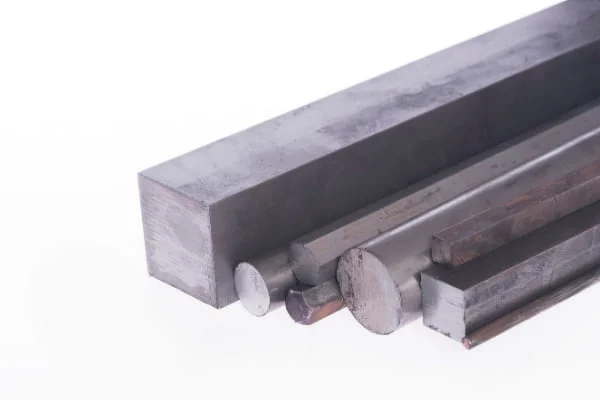
Free Machining 1214
Free Machining (1214) steel is a resulfurised carbon steel bright bar, characterised by low tensile and low hardenability, generally supplied in the cold drawn or turned and polished condition. It’s well known for its excellent machinability, reasonable strength and ductility.
Due to its very low hardenability, 1214 is generally used in the supplied condition. But it will not respond satisfactorily to flame or induction hardening due to its low carbon content, and it’s also not effective at nitriding, due to a lack of suitable alloying elements.
1214 also has a higher sulphur content, which can cause hot shortness and porosity during welding. For this reason, welding should be avoided.
Free machining is used extensively by all industry sectors for parts and components where extensive machining is involved and strength or impact properties are not critical to the application. Some of the typical applications free machining is used for include lightly stressed components and machinery parts, either in the supplied condition or carburised as required.
However, it’s important to note that 1214 is not always tensile tested, so it’s not always guaranteed it will meet any specified minimum tensile property requirements. It’s a good idea to check your application before selecting this engineering steel grade.
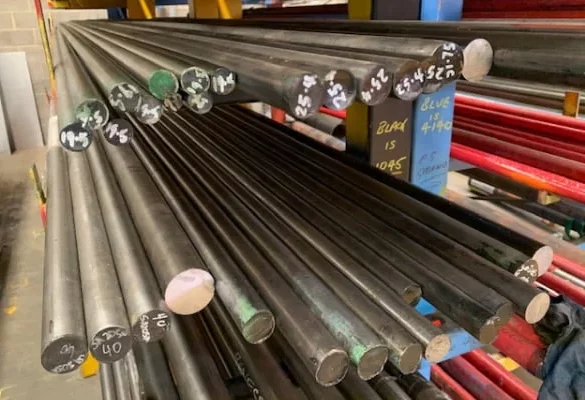
Medium Tensile 1045
1045 steel is a medium tensile, low hardenability carbon steel. Medium tensile steel is characterised by its good weldability, machinability and high strength and impact properties in either the normalised or hot rolled condition.
Medium tensile steel has a low through-hardening capability with only sections of around 60mm in size, making it suitable for tempering and through-hardening. It can also be efficiently flame or induction hardened in the normalised or hot rolled condition to obtain surface hardnesses in the range of Rc 54 – Rc 60 based on factors such as section size, type of set up and quenching medium used.
However, 1045 steel lacks suitable alloying elements and so it does not respond to the nitriding process.
1045 is used extensively by all industry sectors for applications requiring more strength and wear resistance than the low carbon mild steels can provide and the higher strength of the low alloy high tensile steels is not necessary.
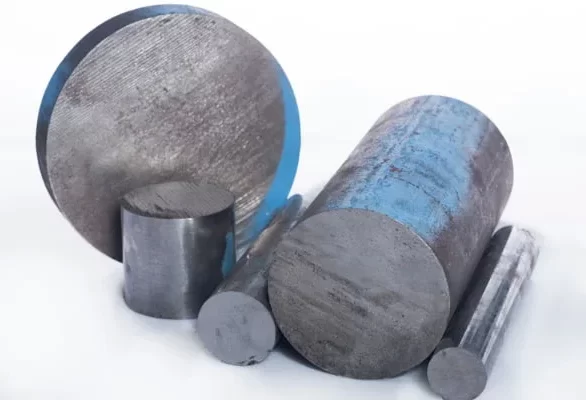
High Tensile 4140, 4340, EN26
High tensile 4140 steel is the most commonly used of the high tensile steels, with a wide range of applications in automotive, gear and engine construction, crankshafts, steering knuckles, connecting rods, spindles, intermediate gears, pump and gear shafts, axles, nuts and bolts.
4140 is a low alloy steel containing chromium, molybdenum and manganese. It’s an excellent material choice due to its toughness, high fatigue strength and abrasion and impact resistance. Not many grades can match the versatility and usefulness of 4140.
The addition of chromium and molybdenum promotes corrosion resistance. The molybdenum can be particularly useful when trying to resist corrosion due to chlorides. The manganese in 4140 steel is used to increase hardenability and as a deoxidiser. In alloy steels, manganese can also combine with sulfur to improve machinability and make the carburising process more effective.
In addition to the standard peeled (< 100mm dia) and black bars (> 100mm dia), Edcon Steel stocks a comprehensive range of metric and imperial centreless ground 4140 bars.
4340 alloy steel is a heat treatable and low alloy steel, containing chromium, nickel and molybdenum. It has high toughness and strength in the heat treated condition.
4340 can be machined using all conventional techniques. The machining process can be performed in the annealed or normalised and tempered conditions. 4340 also has good ductility and formability in the annealed condition. It can be bent or formed by pressing or spinning in the annealed state.
This makes 4340 a great choice for power transmission gears and shafts, aircraft landing gear and other structural parts.
Finally, EN26 is a 2.5% nickel chromium molybdenum high tensile grade. It is suitable for applications which require higher tensile and yield strength than EN24 or EN25 specifications. Typical applications include gears, shafts, spindles, pins, rams, turbine discs and torsion bars.
EN36A
Also known as case hardening steel, EN36A is a chromium-nickel steel that has high core strength and excellent fatigue resistance. It is a high tensile steel which is suitable for applications requiring high tensile strength and toughness.
It is particularly suitable for medium to large cross sections and automotive or general engineering purposes where both surface hardness and good core strength are required.
Chrome Bar
The surface of chrome bar is extremely smooth and offers excellent corrosion resistance. It has good machinability and reasonable weldability.
Typical applications of 1045 hard chrome bar include the hydraulic and pneumatic industries. It is also commonly used in equipment such as transport, lifting, mining, earth moving and agricultural equipment. Edcon Steel can also source chrome bar in 4140 grade in some sizes if a stronger base metal is required.
Carbon Hollow Bar
Carbon Hollow Bar comes in a number of common grades, including 20MnV6 and Euronorm.
It has excellent machinability and weldability and can be carburised or nitrided. It also offers high tensile strength and yield. Carbon hollow bars are supplied in the black hot rolled condition.
Carbon Hollow Bar can be through hardened and tempered, which will produce a moderate improvement in tensile and yield strength.
Common applications for carbon hollow bar include conveyor rolls, hollow parts and components (e.g. nuts and rings), cylinders and hollow shafts.
All your engineering steel requirements under one roof
Edcon Steel is Australia’s most comprehensive online steel and metal superstore, so if you’re looking for products for your next project, we’ve got you covered. We cut and supply steel and metal – in a wide range of shapes, sizes and grades – for all your project needs.
Read more steel articles to find out more about the steel industry, customer projects and product resources.

